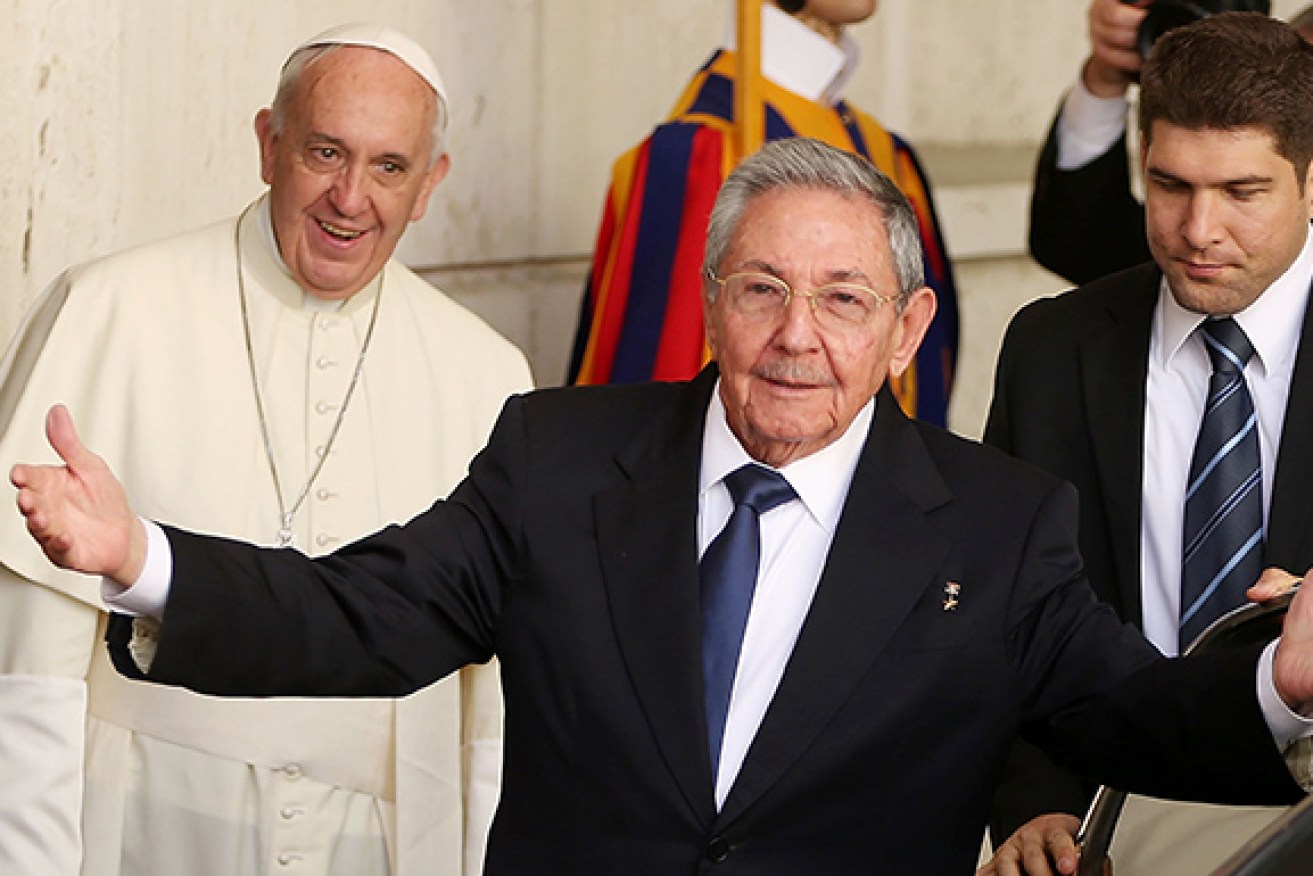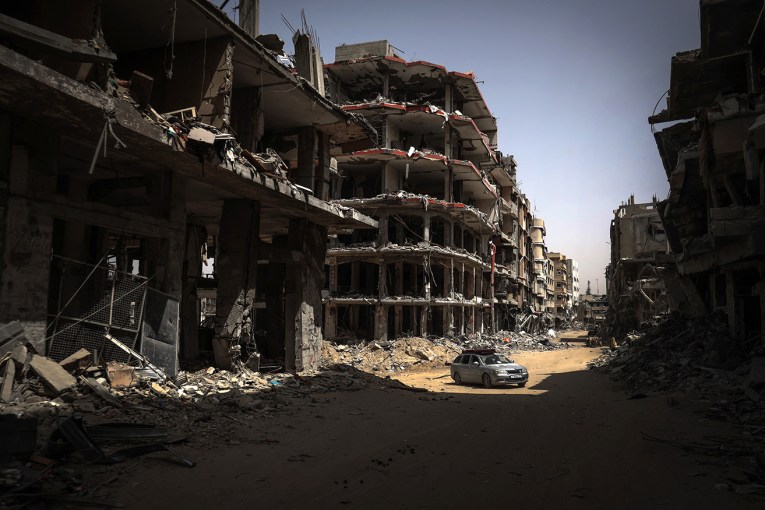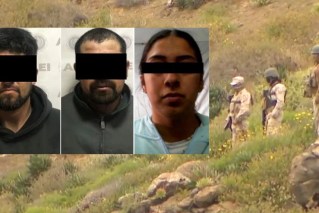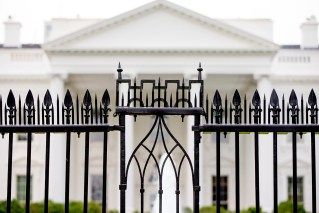Pope charms Raul Castro

Cuban president Raul Castro has met Pope Francis at the Vatican, thanking the pontiff for his role in brokering an historic rapprochement between Havana and Washington, a papal spokesman says.
“Raul Castro thanked the Pope for his mediation between Cuba and the United States,” Vatican spokesman Federico Lombardi said of the exchange that also focused on the Pope’s upcoming visit to Cuba.
The first South American pope played a key role in secret negotiations between the United States and Cuba, which led to the surprise announcement in December that the two countries would seek to restore diplomatic ties after more than 50 years of tensions.
• Kim Jong-Un snubs Russia’s world war party
• Obama is more popular with Cubans than Castro
During the meeting Mr Castro offered the pontiff a painting by Cuban artist Kcho inspired by the plight of illegal immigrants stranded at sea — a subject close to the pope’s heart.
Pope Francis in return presented Mr Castro a medal of Saint Martin de Tours, a French saint celebrated for having given his coat to a beggar, and urged others to “clothe and support the poor”.
Mr Castro, who was accompanied by his foreign minister Bruno Rodriguez Parrilla, held a private hour-long meeting with the pontiff in a small room adjoining the Paul VI Audience Hall, where large gatherings are held in the Vatican.
Their discussions, conducted in Spanish, were described by the Vatican as “very cordial”.
Castro thinking about ‘returning to the Catholic Church’
Mr Castro said he was “very struck” by the Catholic leader’s “modesty and wisdom” and promised to attend all the masses given by Pope Francis on his Cuba visit in September.
“I read all the Holy Father’s speeches,” Mr Castro said, adding that if the pope “continues to speak in this way, one day I will start praying again and return to the Catholic Church. And I’m not saying that as a joke.”
Pope Francis arrived ten minutes ahead of Castro.

Pope Francis personally intervened to repair the diplomatic relationship between Cuba and the US.
A dozen uniformed Swiss Guards stood to attention in front of the building when the limousine bearing the Cuban flag arrived.
The Holy See has revealed the Argentine Pope personally mediated between the US and Cuba, and that the Vatican hosted delegations from the two countries in October.
The Vatican announced last month that Pope Francis would visit the Caribbean island in September, becoming only the third pontiff to do so after John Paul II in 1998 and Benedict XVI in 2012.
Jorge Bergoglio, then auxiliary bishop of Buenos Aires and now Pope Francis, accompanied John Paul II on the first papal visit to Cuba, during which John Paul II called for Havana to be brought in from the cold.
“Let Cuba open itself to the world, and let the world open itself to Cuba,” he urged, two years after hosting Mr Castro’s ailing older brother Fidel for talks at the Vatican.
From Cuba, Pope Francis will continue on to the US for a meeting with president Barack Obama.
Mr Castro’s Vatican visit, announced only Tuesday, followed a visit to Russia, where the Cuban leader attended a grandiose World War II victory parade on Saturday.
He was to meet Italian prime minister Matteo Renzi in Rome later on Sunday.
The Catholic Church has consistently backed calls for the lifting of the US trade embargo against Cuba, while staunchly supporting Cuban Catholics and pressuring Havana to release political prisoners, many of whom are Catholic activists.
The Vatican has also kept its distance from Cuban exiles based in Miami, Florida, who have long clamoured for Havana’s Marxist regime to be ousted.
When the now retired Benedict XVI visited Cuba in 2012, he had lengthy, warm talks with Fidel Castro, who is now 88.
The Vatican’s mediation between Cuba and the US administration was a diplomatic success for the Holy See and had a considerable impact in mainly Catholic Latin America.
Other diplomatic efforts have been less successful, including a bid to help resolve the political crisis in Venezuela and a longstanding drive to encourage reconciliation between the Colombian government and guerrilla movements in that country.








